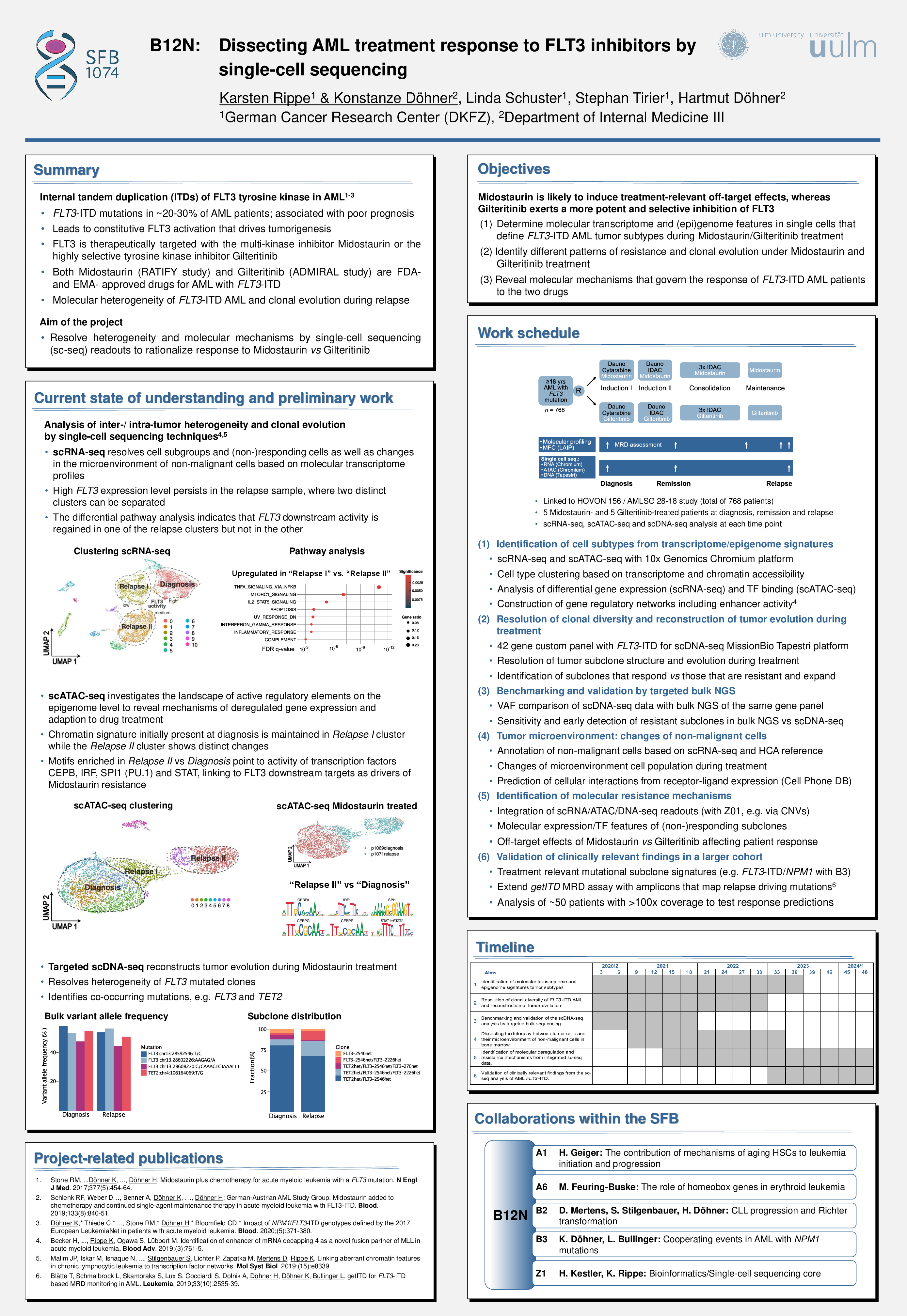B12 (new): Dissecting AML treatment response to FLT3 inhibitors by single-cell sequencing
Prof. Dr. Karsten Rippe
Division of Chromatin Networks
Deutscher Krebsforschungszentrum (DKFZ) & Bioquant
Im Neunheimer Feld 267 - BQ 24
69120 Heidelberg
Phone: 06221-5451376
karsten.rippe(at)dkfz.de

Prof. Dr. med. Konstanze Döhner
Department of Internal Medicine III
University of Ulm
Albert-Einstein-Allee 23
89081 Ulm
Phone: 0731-500-45501
konstanze.doehner@uniklinik-ulm.de

Summary
The laboratories of K. Rippe and K. Döhner will join forces to conduct a com-prehensive single-cell sequencing analysis of tumor heterogeneity and molecular resistance mechanisms for AML driven by internal tandem duplications (ITDs) of the FLT3 tyrosine kinase 3 (FLT3-ITD). The constitutive FLT3 activation in FLT3-ITD AML can be therapeutically targeted with the multi-kinase inhibitor midostaurin or gilteritinib, which is highly selective for FLT3. Off-target effects of midostaurin are likely to be treatment-relevant and, accordingly, the two drugs are compared in a randomized phase III clinical trial (HOVON 156 / AMLSG 28-18). However, the high extent of intra-tumor heterogeneity and associated changes of the clonal tumor composition during treatment make it challenging to reveal the molecular events induced by the different types of FLT3 inhibition and to distinguish responding versus non-responding cells. This issue will be addressed in B12N with a comprehensive multi-omics single-cell sequencing approach that covers DNA mutations, transcriptome and epigenome at different time points during the treatment course. Via an integrative analysis, molecular features will be revealed that define leukemia cell subgroups, their response or resistance to treatment, as well as changes of non-malignant cells in the tumor environment during midostaurin/gilteritinib treatment of FLT3-ITD AML.
For a current list of all project-related publications, please go to this page

